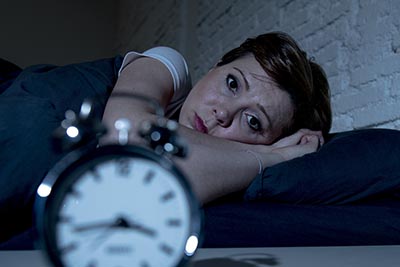
No matter what ails you, when you make a trip to the doctor’s office, they will inevitably ask you, “How are you sleeping?” Sleep is critical to your body, and poor sleep cycles impact all aspects of your health. So what can you do to assure yourself of getting a good night’s sleep on the regular?
So you missed a couple of hours of sleep, what’s the big deal?
A study conducted at Harvard showed that reducing your sleep by just two or three hours a night can have dramatic health consequences. People who slept fewer than six hours a night were more prone to obesity. Babies who were “short sleepers” were more likely to develop obesity later in childhood.
Studies have shown that people who reported sleeping fewer than five hours per night had a significantly increased risk of developing type 2 diabetes. Even six or seven hours of sleep puts you at greater risk of artery calcification, a predictor of future heart attack and even death.
Interactions between sleep and the immune system are also well known, and reduced sleep weakens your immune system and puts you at risk of not fighting off an infection or even battling the common cold.
You have probably experienced the impact that lack of sleep can have on your mood. Inadequate sleep can cause irritability and stress. Chronic insomnia may lead to a person developing a mood disorder like anxiety or depression.
Lack of sleep can cause memory impairment and poor judgment. It can also impact motor skills and produce impairment similar to being intoxicated. According to the Sleep Foundation, anywhere from 10 to 30 percent of adults struggle with insomnia, disproportionately affecting older adults, women, and minorities.
Is CBD for sleep the answer?
Cannabidiol (CBD) is one of many compounds found in cannabis plants, including hemp. These compounds, collectively called “phytocannabinoids,” have been found to have numerous therapeutic uses. One of those is helping to regulate the sleep cycle.
Tetrahydrocannabinol, or THC, is one of those phytocannabinoids and is the psychoactive component of marijuana. Federal Law allows CBD products to contain no more than 0,3 percent THC. However, in full-spectrum CBD products, all the phytocannabinoids are included, and the THC works together with the CBD to achieve many positive health outcomes, including improving sleep.
Taking a CBD gummy or two around 30-45 minutes before bed can chill you out and help relax your mind and body. CBD and THC infused gummies won’t knock you out like narcotics or over-the-counter sleep medication. They are not addictive. But they will give you enough of a sense of ease that you should be able to slip right into sleep.
Many people report that not only does CBD help them fall asleep, but it also keeps them asleep. As a result, they wake up less frequently during the night. And when they do, they can get back to sleep more easily.
CBD works exceptionally well with other sleep health practices. For example, meditation can help lift some of the day’s stress off your shoulders and quiet your mind. Likewise, gentle yoga can not only focus your mind but can stretch the kinks out of your body.
Practicing good sleep health means paying attention to your environment. Bedrooms should be kept cool, with a window open and fresh air, if seasonally appropriate. Also, beds should be for sleeping, not watching television, or working from home. Condition your body to know that when you are in bed, it is time for sleep.
Anywhere from 10mg to 50mg of CBD with THC gummies, capsules, or oil — also called “full-spectrum CBD” — partnered with healthy sleep habits may be the answer to a good night’s rest. Not only will you wake up refreshed and recharged, but you’re staving off the negative health consequences that sleeplessness or a restless night’s sleep can cause.










